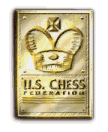![[ PACING THE VOID ]](http://wc.arizona.edu/images/void_button.gif)


![]() Today marks the third of six matches between world chess champion Garry Kasparov and his unusual opponent, Deep Blue, a chess-playing computer assembled and 'trained' by a team of IBM engineers.
Today marks the third of six matches between world chess champion Garry Kasparov and his unusual opponent, Deep Blue, a chess-playing computer assembled and 'trained' by a team of IBM engineers.

![]() Kasparov, who beat previous versions of the same computer in 1994 and 1996, won the first match of this year's competition on Saturday. Deep Blue rallied to beat Kasparov on Sunday, setting the tone for today's tense match as the world waits to see which side will take the lead.
Kasparov, who beat previous versions of the same computer in 1994 and 1996, won the first match of this year's competition on Saturday. Deep Blue rallied to beat Kasparov on Sunday, setting the tone for today's tense match as the world waits to see which side will take the lead.
![]() Poor Kasparov. Not only is the credibility and superiority of the human brain riding on his every move, but even if he does win today's game the only psychological advantage he gets is his own. A human opponent would at least suffer some kind of intimidation knowing they would have to win the next two games to win. Deep Blue not only doesn't know this, but it couldn't if it wanted to.
Poor Kasparov. Not only is the credibility and superiority of the human brain riding on his every move, but even if he does win today's game the only psychological advantage he gets is his own. A human opponent would at least suffer some kind of intimidation knowing they would have to win the next two games to win. Deep Blue not only doesn't know this, but it couldn't if it wanted to.

![]() I'm sure the thought of a $700,000 winner's check isn't making at any easier for Kasparov to sleep at night either. Then again, maybe the $400,000 guaranteed to the loser kills any greed-induced insomnia he might have. The tone of this event may be high tech, but the chess world is also high stakes -- and high profit.
I'm sure the thought of a $700,000 winner's check isn't making at any easier for Kasparov to sleep at night either. Then again, maybe the $400,000 guaranteed to the loser kills any greed-induced insomnia he might have. The tone of this event may be high tech, but the chess world is also high stakes -- and high profit.
![]() It's also highly different, as far as spectating is concerned. There is only one set of human eyes to watch, one set of emotions, one person who can be confused, bored or just plain tired. A large number of chess fans have adapted to the Internet in the meantime. The 1996 competition site, which was carrying the game live, went down after being swamped by onlookers, and this year's turnout has been just as heavy.
It's also highly different, as far as spectating is concerned. There is only one set of human eyes to watch, one set of emotions, one person who can be confused, bored or just plain tired. A large number of chess fans have adapted to the Internet in the meantime. The 1996 competition site, which was carrying the game live, went down after being swamped by onlookers, and this year's turnout has been just as heavy.
![]() So who then, or what, is Deep Blue?
So who then, or what, is Deep Blue?
![]() In geek-speak, (and you can check this out on IBM's "Deep Blue FAQ" pages)
In geek-speak, (and you can check this out on IBM's "Deep Blue FAQ" pages)
 Deep Blue a massively parallel, 32-node IBM RS/6000 SP computer sporting two Power Two Super Chip processors.
Each of the nodes contains 8 dedicated VLSI chess processors, for a grand total of 256 tandem processors. The actual chess-playing code is written in C and runs on the AIX operating system. A larger database of chess games has been added to Deep Blue's repoire and it can 'think' 200 million moves in advance every second, up from 100 million per second in the 1996 competition.
Deep Blue a massively parallel, 32-node IBM RS/6000 SP computer sporting two Power Two Super Chip processors.
Each of the nodes contains 8 dedicated VLSI chess processors, for a grand total of 256 tandem processors. The actual chess-playing code is written in C and runs on the AIX operating system. A larger database of chess games has been added to Deep Blue's repoire and it can 'think' 200 million moves in advance every second, up from 100 million per second in the 1996 competition.
![]() In plain English, though, Deep Blue is a huge computer made up of many tiny computers. In a method known as parallel processing, the whole setup works in unison to solve problems very quickly - in this case, trying to beat the heck out of Kasparov's game. The same IBM team who built Deep Blue and watched it lose to Kasparov last year basically took it back to IBM, made it twice as fast, gave it a bigger encyclopedia of old chess games and sat down with a chess grandmaster for additional lessons. It didn't win the first time, so they sped it up and made it hit the books, so to speak.
In plain English, though, Deep Blue is a huge computer made up of many tiny computers. In a method known as parallel processing, the whole setup works in unison to solve problems very quickly - in this case, trying to beat the heck out of Kasparov's game. The same IBM team who built Deep Blue and watched it lose to Kasparov last year basically took it back to IBM, made it twice as fast, gave it a bigger encyclopedia of old chess games and sat down with a chess grandmaster for additional lessons. It didn't win the first time, so they sped it up and made it hit the books, so to speak.
![]() As IBM's chess pages make it clear, the same technology and methods that go into getting Deep Blue should eventually work it's way into mainstream computing applications. Chess is one thing, but the same processes may shed some light on how to make real-world applications run that much faster. As the chess pages put it, "Chess and Kasparov are merely ways of benchmarking progress."
As IBM's chess pages make it clear, the same technology and methods that go into getting Deep Blue should eventually work it's way into mainstream computing applications. Chess is one thing, but the same processes may shed some light on how to make real-world applications run that much faster. As the chess pages put it, "Chess and Kasparov are merely ways of benchmarking progress."
![]() Apparently, they're also a great way to spend five years and unspecified millions of dollars, too. IBM's pages never put a price on Deep Blue, but here's a neat fact. Take a look at Kasparov's homepage and tell me if the one link to an online catalog of merchandise isn't housed at shop.ibm.com/shopping/chess_shop.
Apparently, they're also a great way to spend five years and unspecified millions of dollars, too. IBM's pages never put a price on Deep Blue, but here's a neat fact. Take a look at Kasparov's homepage and tell me if the one link to an online catalog of merchandise isn't housed at shop.ibm.com/shopping/chess_shop.

 "It's like a human not being able to outrun an automobile," Rozenblit said.
"It's like a human not being able to outrun an automobile," Rozenblit said.
Today's game will be played at 3pm EDT, 19:00 GMT. You can keep track of them by visiting IBM or the Internet Chess Club. Games 5 and 6 will be played on Saturday and Sunday.
----------------------
Links
- IBM's Official Kasparov v. Deep Blue site.
- Kasparov V. Deep Blue in February, 1996.
-
The Official Site of World Chess Champion Garry Kasparov
- Internet Chess Club
- USChess Online
- Internet Chess Club

PAST PACINGS:
#1- January 24
#2- January 31
#3- February 4
#4- February 7
#5- February 11
#6- February 14
#7- February 18
#8- February 21
#9- February 25
#10- February 28
#11- March 4
#12- March 7
#13- March 11
#14- March 14
#15- April 15
#16- April 18
#17- April 22
#18- April 25
#19- April 29
#20- May 2
